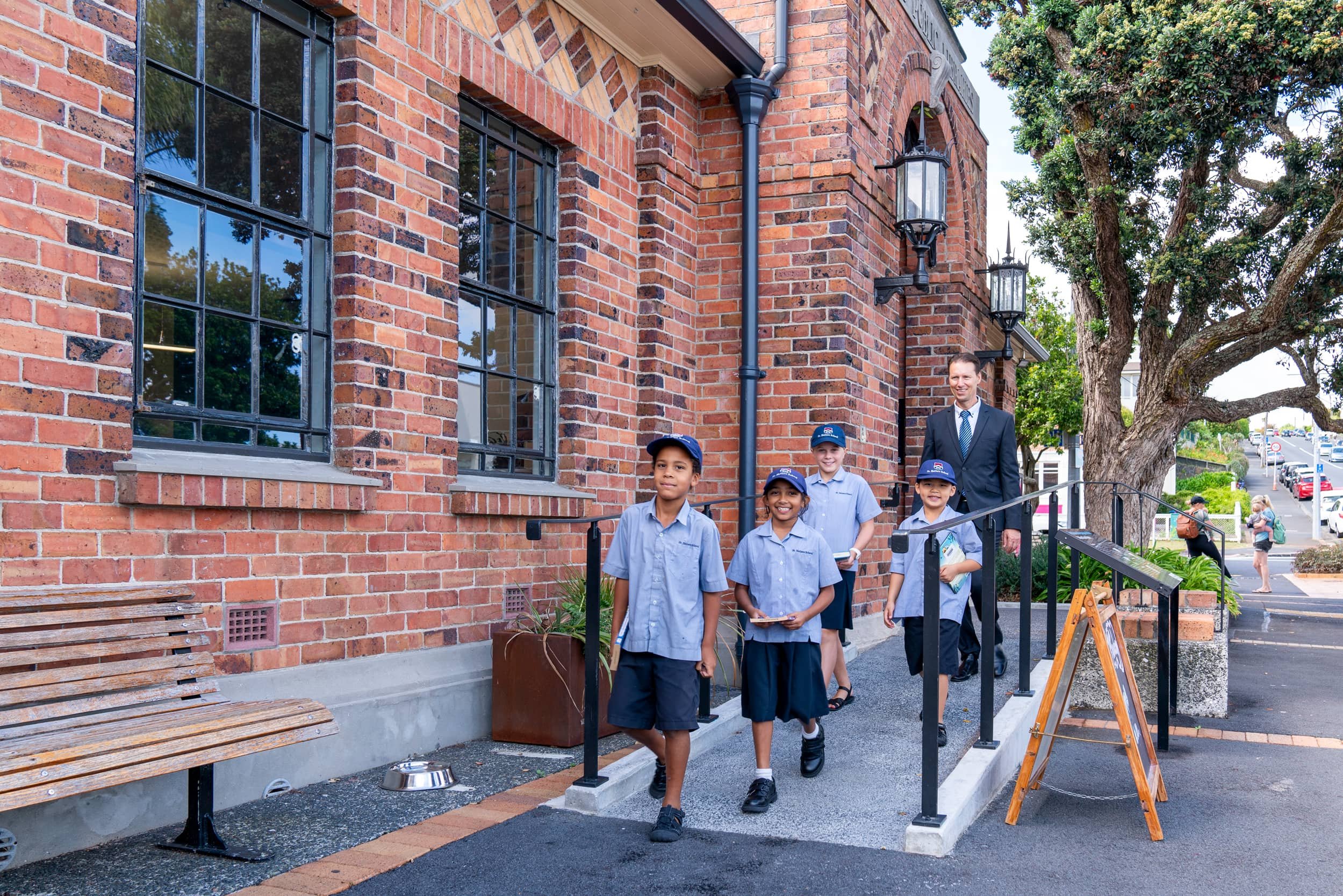Our Kāhui Ako
Glendowie Kāhui Ako or Community of Learners (CoL) is made up of four schools in our local Glendowie community.
These are:
Churchill Park School
Glendowie School
St. Heliers Primary School
Glendowie College.
Our schools work together to provide seamless high-quality education. This is facilitated through the Principals and across School Leaders working together to engage all akonga/kaiako (students and staff) in the pursuit of shared school goals.
Glendowie Kāhui Ako started in 2018.
Combined staff and board meetings keep everyone abreast of progress against the current achievement challenges.
Achievement Challenge 1: Mathematics
-
To outline a comprehensive coherent written curriculum in mathematics that includes a balance between knowledge-based and student-centred pedagogy, so that schools can better support students to improve their understanding, knowledge and skills in Mathematics and become more proficient mathematicians.
To identify key personnel to lead this Achievement Challenge.
To identify areas of strength and weakness in students’ Maths knowledge. (Pre-testing, PAT or AsTTle data at identified transition points.)
To establish transition points with identified knowledge, skills and concepts students should have.
To develop a document that outlines the sequence of mathematics learning from Year 1 to 13. (align to the curriculum refresh)
To create and implement a PL programme to meet the pedagogical needs of delivering the Maths curriculum effectively.
To share student data between schools so strengths, weaknesses and transition milestones can be identified.
To attain a 95% pass rate in NCEA Numeracy by the time students leave college.
-
Student achievement data is used to identify gaps in student Mathematics learning at identified transition points.
A sequence of Mathematics learning from Year 1 - 13 is agreed to and followed by teachers.
Professional Learning is undertaken so that the pedagogical needs of delivering the Mathematics curriculum are met.
95% of all school leavers have attained the NCEA Numeracy requirement.
Increase achievement scores in PAT in Years 4-8 and CEM at Year 8 by 0.5 of a stanine across schools.
Increase the number of students in the top six PAT stanines at Years 4-8 by 10%.
Achievement Challenge 2:
Local Curriculum
-
principals and teachers, along with the community, can show what they want their students to learn and how their curriculum is designed to achieve this.
learning is personalised and inclusive; taking into account students' aspirations, interests, identities, languages, and cultures.
the long view is taken: each student’s ultimate learning success is more important than the coverage of particular achievement objectives.
it is manageable and realistic. (Leading Local Curriculum Guide: Local Curriculum, MOE, 2019)
-
To ensure there is a shared understanding amongst teachers about expectations at key transition points in the Glendowie Kahui Ako’s local curriculum.
To strengthen knowledge and pedagogical approaches in the delivery of the local curriculum particularly the Aotearoa New Zealand Histories Curriculum, so there is evidence of curriculum coherence and development through curriculum levels across all the schools in the Kahui Ako.
To incorporate Mātauranga Māori into all learning areas across all schools in the Kahui Ako.
Examine what is existing good culturally responsive practice in our Kahui Ako and how we can achieve positive outcomes for Māori.
To develop common assessment tasks that will measure the ‘Do’ (skills) aspect of the Identifying and Exploring Historical Relationships strand of the ANZH curriculum at the key transition points.
Once baseline data is collected, to identify an appropriate percentage improvement in the local curriculum common assessment tasks identified above.
-
Every student in our Kahui Ako up to Year 10 will have the opportunity to engage in our local stories as part of the implementation of the Aotearoa New Zealand Histories Curriculum. (This will be a focus as the ANZHC is incorporated into teaching units).
Every student in our Kahui Ako will have the opportunity to engage in an aspect of Mātauranga Māori as part of their learning experience.





